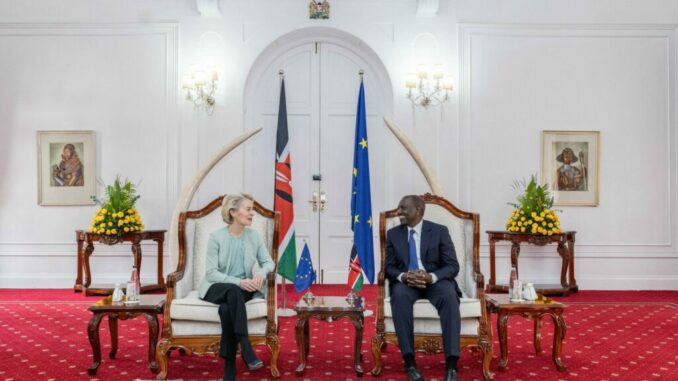
Just as Kenya in inching closer to concluding a preferential trade deal with European Union, a similar deal between the East African Community’s (EAC) and the 27-country bloc has broken down, prompting the EAC to negotiate trade agreements with countries like the United Kingdom and the United Arab Emirates, aiming to diversify and boost its economy.
The European Parliament last week (29 February) endorsed the EU-Kenya Economic Partnership Agreement (EPA), paving the way for heads of state and government to give final approval and complete the ratification process on the EU side. “It is the first agreement with a developing country in which the EU’s new approach to trade and sustainable development is reflected,” the European Parliament said in a statement. For Kenya, the deal means preserving its long-term tax-free access to exports to the 27 countries in the bloc while gradually opening up her market for duty-free imports and investments from Europe. Kenyan lawmakers have also to debate and approve the document for it to become enforceable.
The EPA between the EU and Kenya is largely a modification of the text in the stalled EU-East African Community pact which was first agreed in October 2014 subject to approval by respective parliaments, with the major change being the inclusion of clauses around climate change. The implementation of the EU-EAC treaty, which Kenya endorsed in 2016, had stalled after the other EAC countries rejected it. Following the breakdown of the EPA with the EU, the East African Community is now looking toward new horizons, as at least seven nations, including the UK, the UAE, Singapore, and Pakistan, have expressed interest in forging free trade agreements with the African regional bloc. Experts point out that the EAC is now keen not only on diversifying its trade relationships to bolster its economic prospects but also to negotiate terms that are favorable and reflective of the bloc’s developmental aspirations.
